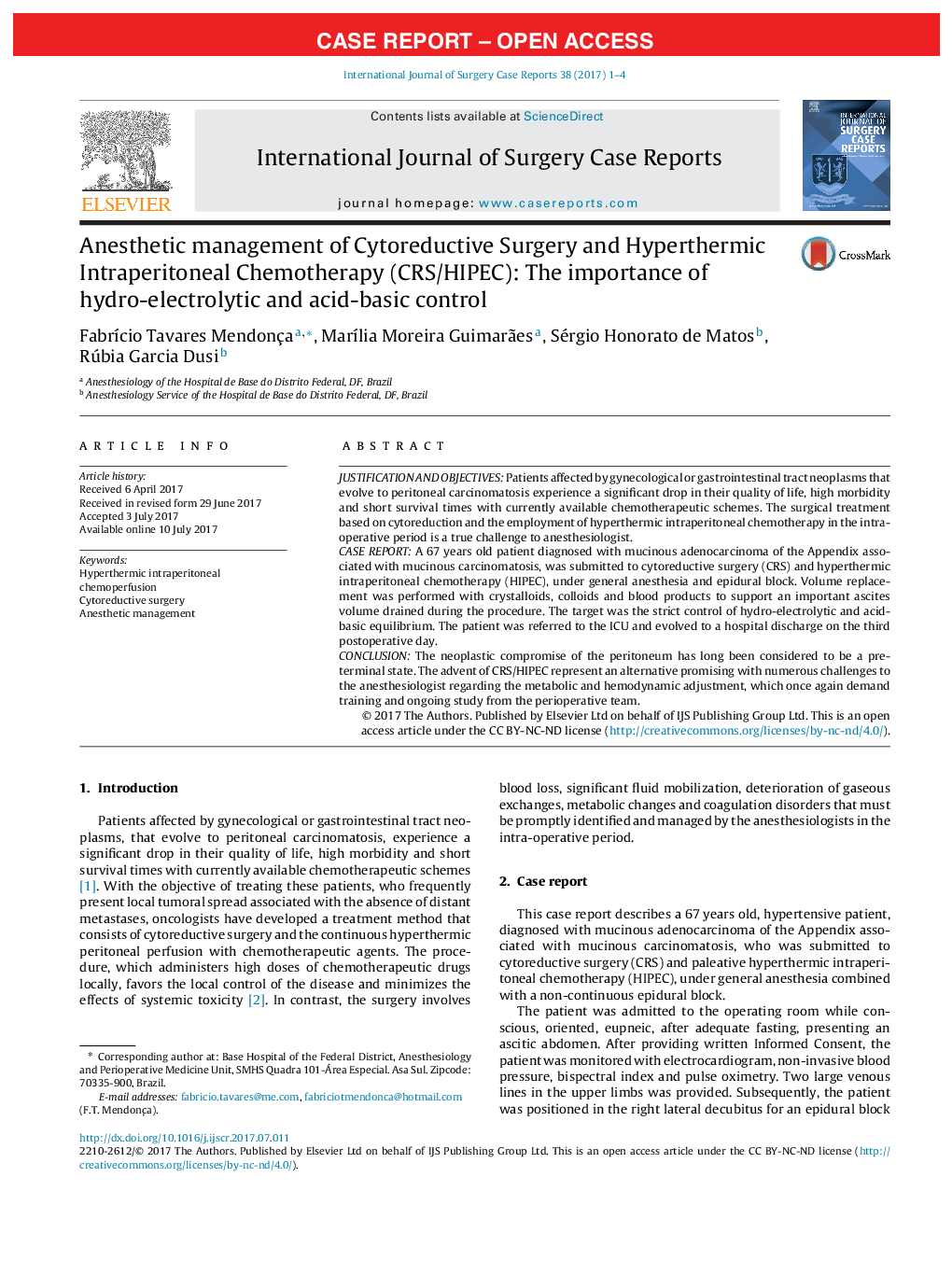| Article ID | Journal | Published Year | Pages | File Type |
|---|---|---|---|---|
| 5732511 | International Journal of Surgery Case Reports | 2017 | 4 Pages |
â¢Intraoperative chemotherapy represents a real challenge for the hole perioperative team.â¢The elevation of body temperature is associated with an increased intra-abdominal pressure and severe hemodinamic disorders.â¢Blood loss, significant fluid mobilization, deterioration of gaseous exchanges should be expected and treated promptly.
Justification and objectivesPatients affected by gynecological or gastrointestinal tract neoplasms that evolve to peritoneal carcinomatosis experience a significant drop in their quality of life, high morbidity and short survival times with currently available chemotherapeutic schemes. The surgical treatment based on cytoreduction and the employment of hyperthermic intraperitoneal chemotherapy in the intra-operative period is a true challenge to anesthesiologist.Case reportA 67 years old patient diagnosed with mucinous adenocarcinoma of the Appendix associated with mucinous carcinomatosis, was submitted to cytoreductive surgery (CRS) and hyperthermic intraperitoneal chemotherapy (HIPEC), under general anesthesia and epidural block. Volume replacement was performed with crystalloids, colloids and blood products to support an important ascites volume drained during the procedure. The target was the strict control of hydro-electrolytic and acid-basic equilibrium. The patient was referred to the ICU and evolved to a hospital discharge on the third postoperative day.ConclusionThe neoplastic compromise of the peritoneum has long been considered to be a pre-terminal state. The advent of CRS/HIPEC represent an alternative promising with numerous challenges to the anesthesiologist regarding the metabolic and hemodynamic adjustment, which once again demand training and ongoing study from the perioperative team.
